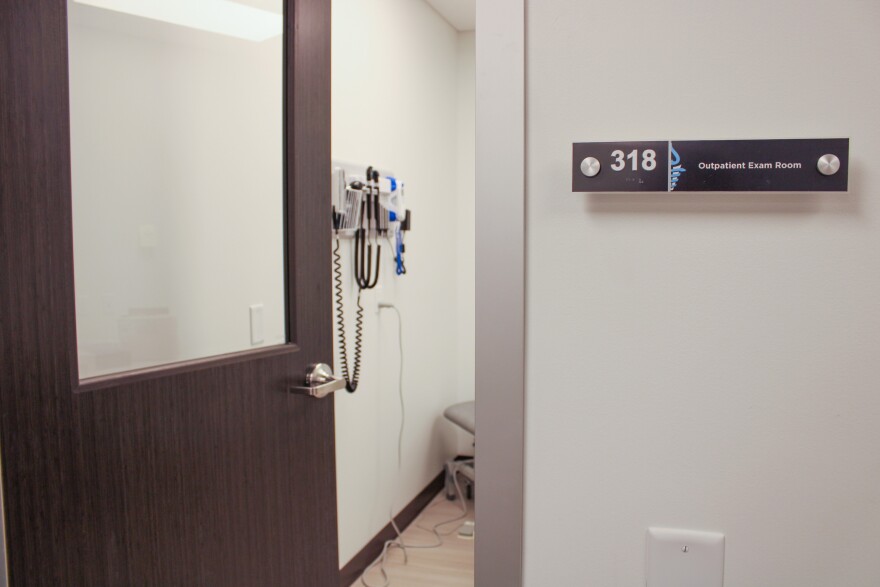This story has been updated.
Kansans should continue to seek preventive care — things like cancer screenings — despite a court ruling Thursday that could let insurance companies off the hook on paying for that care, say health policy experts and advocacy groups.
The federal district court ruling in Texas could prevent the Biden administration from enforcing provisions of the Affordable Care Act, or Obamacare, requiring insurance plans to pay for screenings for depression, diabetes, HIV and a range of other conditions.
In that case, the judge ruled for a business that challenged the recommendations on what should be covered under the ACA because the panels setting those guidelines aren’t appointed by elected officials. The plaintiffs also contend some of the federal government’s requirements violate religious rights.
“This is not the potential fatal blow to the ACA like previous court cases, but it would limit a very popular benefit that tens of millions of people use,” said Larry Levitt, Kaiser Family Foundation executive vice president for health policy.
That would include Kansans seeking preventive care, including cancer screenings, some pregnancy-related care and PrEP — an HIV prevention pill.
What services?
Coverage for preventive screenings would revert back to recommendations made when the ACA took effect in 2010.
An estimated 100 million people use preventive services the ACA requires insurers to cover without copays or deductibles. The ruling applies to services recommended by the U.S. Preventive Services Taskforce.
“It does not overturn women's health services recommended by” other agencies, Levitt said.
Lung screenings, mammograms and colonoscopies have all had updated recommendations within the last 10 years. If the challenge to the landmark health insurance law stands, insurance companies would not be required to incorporate those updates in their coverage policies.
The American Cancer Society Cancer Action Network estimates roughly 17,000 Kansans will get new cancer diagnoses this year.
“Removing barriers, such as financial roadblocks, makes early detection more accessible and affordable and helps save lives,” said Megan Word, the organization’s government relations director.
She said early detection increases the likelihood of survival and could ultimately reduce the cost of treatment.
The ruling could also threaten zero-cost coverage for certain screenings during pregnancy, including for high blood pressure. Preeclampsia is one of the leading causes of maternal mortality nationally and in Kansas. It disproportionately impacts Black women.
Sharla Smith, an associate professor at the University of Kansas Medical Center, said pregnant women might forgo those screenings if they’re concerned about cost.
“If your blood pressure is high but you don’t think that it’s covered by your insurance, will you seek care? I think that is a major question,” she said.
The maternal mortality rate for pregnant Kansans is about twice the national average. It’s even higher for Black Kansans. Nationally, over 80% of maternal deaths are preventable.
“One of those preventive measures (for preeclampsia) — which has contributed to maternal deaths, particularly Black maternal deaths — is going to be jeopardized by this ruling,” Smith said.
While insurers would likely still cover many preventive services, they’d have the ability to drop coverage or ask patients to share some of the costs.
Experts expect some of the biggest changes would be to PrEP coverage — because of the drug’s high cost and some employers’ claims that covering an HIV-prevention drug violates their religious freedom.
Lindsey Dawson, associate director of HIV Policy at the Kaiser Family Foundation, said the costs to patients could be significant.
“The generic is now about $30 a month,” she said. “When we’re talking about a branded product, we’re getting north of $20,000 a year. Estimates for the cash price for labs and provider visits for the year is about $2,000.”
Contraceptives and preventive screening recommendations, made before March 2010, would still be covered under the ACA.
Who’s affected?
Most insurance contracts are already in place for the year, so experts doubt anyone would lose services immediately.
“I would not expect them to do anything right away,” said Linda Sheppard, Kansas Health Institute strategy team leader. (KHI and the Kansas News Service both receive significant funding from the Kansas Health Foundation.) “I think that they'll just sort of go until to a holding pattern and, and see what happens with this.”
People in Kansas with commercial insurance — such as employer-sponsored coverage, and the roughly 125,000 individuals in the state who are covered through the marketplace exchange — would be affected if the decision is upheld. Insurers would be able to decide if and what coverage they might offer in their policies that’s not federally mandated.
Medicare enrollees would see no change. And because Kansas hasn’t expanded Medicaid coverage under terms of the ACA, that coverage would not change because of the ruling.
Alina Selganicoff, a senior policy vice president for the advocacy group Women’s Health Policy, said the preventive screening requirements provision was included in the ACA to help encourage more people to take advantage of recommended services.
“There was a body of research that showed that cost sharing, even small amounts, really reduces the likelihood that people use preventive services,” Selganicoff said.
United Methodist Health Ministry Fund President David Jordan said the court ruling could further deepen health disparities by confusing people about what coverage might cost.
“It becomes more complicated to access services and it makes it less likely for folks to have access to services,” Jordan said.
What’s next?
The Biden administration filed an appeal of the judge's ruling on Friday.
“All of the preventive services are kind of up for grabs, as we go through the appeal process,” said Laurie Sobel, Women’s Health Policy associate director.
The Biden administration wants the Texas judge's order set aside during the appeals to keep the coverage in place while the case is resolved.
Some states might try to take action of their own to prevent a loss of coverage. Before the ACA, states regulated what private insurance policies had to cover. But there are limits on what can be done.
“Self-insured employer plans which cover most people with private insurance cannot be touched by state regulations,” said Larry Levitt, executive vice president of health policy for the Kaiser Family Foundation. “So states, I think, can and will move to fill in some of the gaps that this ruling leaves, but there are still big gaps remaining.”
Samantha Horton reports on health for the Kansas News Service. You can follow her on Twitter @SamHorton5.
Rose Conlon reports on health for KMUW and the Kansas News Service. You can follow her on Twitter at @rosebconlon or email her at conlon@kmuw.org.
The Kansas News Service is a collaboration of KCUR, Kansas Public Radio, KMUW, and High Plains Public Radio focused on health, the social determinants of health and their connection to public policy.
Kansas News Service stories and photos may be republished by news media at no cost with proper attribution and a link to ksnewsservice.org.
Copyright 2023 KCUR 89.3. To see more, visit KCUR 89.3. 9(MDA4OTAxNzAzMDEzMjc0MTc2MzA5ZDZlMw004))








